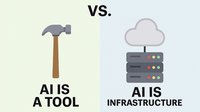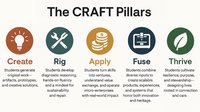PELHAM, NY - Literacy publisher Benchmark Education Companyannounced results of a scientific research study that documented dramatic effectiveness of its Benchmark Literacy comprehensive core program for elementary schools. The study involved students in grades K to 6 in the Fairfax County Public Schools in Virginia over the 2011–12 and 2012–13 school years. During the study, students who received Benchmark Literacy with On-Site Professional Development achieved very good results with reading levels significantly higher than peers in their school district and in the state, as measured by the Developmental Reading Assessment, 2nd Edition (DRA2), and Virginia State Standards of Learning (SOL) Reading Test.
The first year results of this study, published in 2012, showed impressive statistically significant reading growth by students in theBenchmark Literacy school compared to the control school. The control school’s administrators then requested to implement the Benchmark Literacy Program during the 2012–13 school year. The latest results are from the second year of the study, featuring the former control school after it too implemented the program.
On the 2013 SOL, after using Benchmark Literacy for less than a year, students in grades 3 to 6 performed considerably better than their State’s average, with 11 percent more scoring Proficient or Advanced compared to the State. Students performed slightly below (2009–2010) or similar to the state average in 2010–2011 and 2011–2012. Another positive effect was among the school’s boys, who tend to be slow readers. The prior year, only boys in grade 4 scored above the state average in proficiency. After using Benchmark Literacy, boys in grades 3, 4, and 5 dramatically outperformed their statewide peers in percentage “Proficient” by 9, 15, and 17 percentage points, respectively.
Economically disadvantaged students receiving free or reduced lunch (Title I) and English Language Learners (ELL) in grades 3 to 5 did exceptionally well. Among Title I and ELL students using Benchmark Literacy, 16 per cent more ELLs and 10 per cent more Title I students scored “Proficient” compared with the State averages versus only 2 per cent more the year before for each cohort. The study was conducted by Main Street Academix, an independent, university-based research company, who termed the gains “rare” and “impressive in the world of educational studies.”
“The results speak for themselves: With Benchmark Literacy’s emphasis on nonfiction reading and vocabulary, DRA reading growth more than doubled for our Title I and ELL students compared to the previous year. This improvement carried over to the state reading test, where the percentage of “Proficient” students in grades 3 to 5 exceeded the state average by 11 percent, compared to only 2 percent last year. I highly recommend Benchmark Literacy to schools,” said Principal Brendan P. Menuey, Ed.D., of Lake Anne Elementary School in Fairfax County Public Schools in VA, the research school in the 2012-13 year of the research study.
“It is clear from the researchers’ analyses of the Developmental Reading Assessment results from the study that students improved their reading fluency and comprehension at a greater rate than students in the prior year to implementing our literacy program,” said Jay Castelli, Vice President of Marketing & Research, Benchmark Education Company. “Students showed similar improvements on the Virginia State Standards of Learning Reading Test, and amazingly, at-risk students achieved greater gains than the general student population.”
At-Risk Student Achievements
Some of the most dramatic results of the research study were among Title I students, ELLs, and students with special needs. The most impressive finding was that educationally disadvantaged students in grades 3 to 6 gained more DRA levels in the 2012–13 school year compared with their educationally advantaged counterparts. Disadvantaged students actually started to catch up with their classmates. Title I students in schools using Benchmark Literacy gained an average of .5 more DRA levels compared to students not eligible. ELL students gained 1.5 more DRA levels than non-ELL students. Special Education students gained 1.5 more DRA levels than non-special ed students.
More details about the study are available on Benchmark Education’s website under “Teacher Resources\Scientific Research.”
Benchmark Literacy Program
For the research study, schools used Benchmark’s high-interest literary resources to improve reading skills in grades K-6. Resources included: Benchmark Literacy precisely leveled books; Anchor Comprehension, Genre, and Fluency posters; Content Connections and Shared Reading Classics Big Books; My First Readers’ Theater and Nursery Rhymes and Songs lap books and big books; Reader’s Theater™ non-fiction and fiction multi-leveled scripts; Benchmark Literacy Phonics, Word Study& Vocabulary kits; Benchmark Writer’s Workshop; Benchmark Universe Talking e-Book, Interactive Whiteboard, and Comprehension Strategy Assessment online resources.
As part of the literacy program, teachers received Benchmark’s customized professional development, including an initial product training followed by monthly on-site coaching in whole-group and small-group differentiated instruction.
Benchmark Education Company
Headquartered in Pelham, NY, Benchmark Education Company is a leading publisher of K–12 core, supplemental, and intervention literacy resources in English and Spanish. These resources are supported by instructional technology solutions as well as on-site and online customized professional development training for teachers and administrators. Benchmark print and online resources are differentiated to support all learners in all settings and are research-based and proven. In addition to extensive educational use in the USA, they are also used in schools and training centers in the Middle East, Canada, South America, and Asia. Contact BEC at (877) 236-2465 or visit www.benchmarkeducation.com.
Main Street Academix
Founded in 2002 by Dr. William Preble, a distinguished college professor, educational researcher, administrator and author, the mission of Main Street Academix is to improve teaching and learning, school climate and safety, and school quality. MSA brings together a powerful mix of experienced educational leaders, researchers, writers, artists, graduate students, and facilitators eager to work closely with educational leaders, communities, and state agencies who are committed to school improvement.










